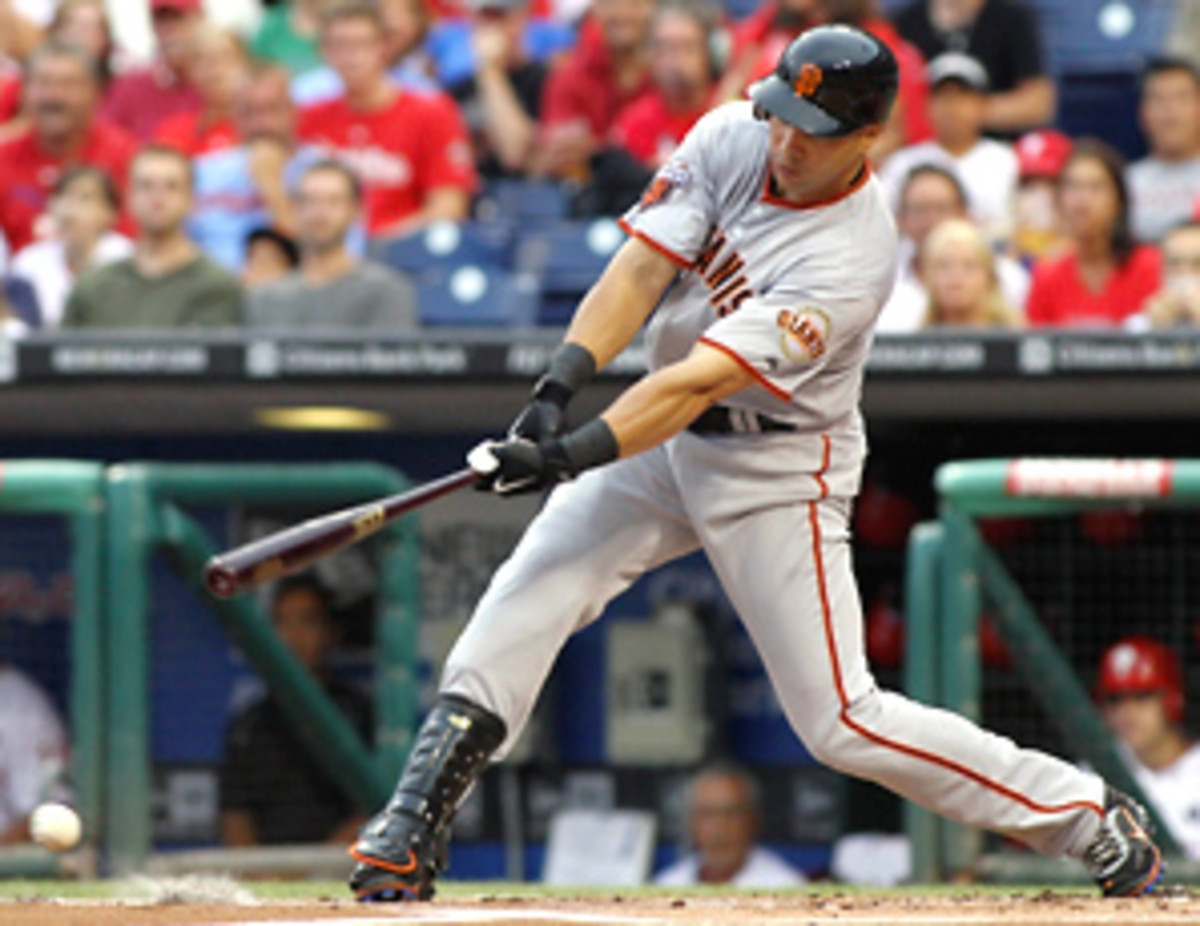Giants put all their chips in with trade for Beltran
Maybe it was a trip to an NL East power and the reminder that much of the baseball world still thinks that the Giants' World Series championship was a fluke.
Maybe it was weariness of waiting for Aubrey Huff or Cody Ross or any of last year's saviors to heat up.
But whatever it was, Giants general manager Brian Sabean broke from both personal pattern and organizational philosophy on Wednesday and made a bold move. He traded a top pitching prospect for all-star Carlos Beltran, who joined the Giants in Philadelphia on Thursday night.
"Hopefully this shows we mean business," Sabean said on a conference call Thursday.
It is a big-time move for a big-time player, the best offensive player on the trade market.
It's the kind of move Sabaean's critics didn't think he would ever make, the kind of move that the runs counter to the Giants self-stated philosophy.
But Sabean and the Giants have never been in this position before. Never been reigning world champions. Never been flush with both cash and prospects. Never had a pitching staff that has proven it could dominate in the postseason.
Never had such a drastic, screaming need for offense.
Time to seize the moment.
The Giants are 16 games over .500 but have been doing it with smoke, mirrors and good pitching all season. Sabean knew that wasn't going to cut it in October.
Despite having the third-worst offense in baseball, the Giants have the third-best record in the National League. They appear headed back to the postseason, where they would do no damage without an improved offense.
So Sabean pushed in all his chips and went for it. He not only got Beltran for his team, he also kept the 34-year-old away from potential postseason opponents Atlanta and Philadelphia. And it means the Giants won't have to face Beltran, who is hitting .409 against them this year.
Beltran will hit third and play right field, meaning Nate Schierholtz -- one of the Giants few offensive contributors -- will likely move to left. Whether or not the Giants can sign Beltran long term after the season isn't even much of a factor. This isn't about the future. This is about now.
"There's a sense of urgency to do something to help this offense get going," San Francisco manager Bruce Bochy said on Wednesday night.
The Giants have too much to waste, too many other things going in their favor. They know how to win. They have one of the best starting staffs in the league. They have the best bullpen in the league. They have a home-field atmosphere that's off the charts, with every game sold out this season. They are printing money: Panda Hat for $30, beer for $9.25, World Series DVD for $45.
This was a convergence of factors that made it time to depart from both the Giants philosophy and Sabaean's established pattern.
Managing general partner Bill Neukom has instituted a "Giants Way" of thinking: cultivating homegrown players, bolstering the farm system, avoiding high-priced free agents. The Giants no longer subscribe to "The Big Bat Theory" that dominated their mindset during the Barry Bonds years. Didn't want to award long-term overly rich deals like the one that burned them with Barry Zito. But the Giants departed from their philosophy by trading Wheeler.
Under Sabean, the Giants have dinked and dunked in the trade market. Last year, in trying to strengthen the team for a postseason run, Sabean was unable to do anything but add pieces to the bullpen. His offensive acquisitions -- Cody Ross, Mike Fontenot -- were August stopgap measures.
And Sabean learned the hard way that he should hold onto pitching. One of his worst trades -- one that haunted Giants fans for years -- was Joe Nathan and Francisco Liriano to the Twins for A.J. Pierzynski, who flamed out spectacularly and was one of the most unpopular players to ever enter AT&T Park.
Sabean once derided fans who clamored for big trades as "the lunatic fringe." But times and circumstances change. Though the Giants rotation is going to get quite a bit more expensive in the coming years, it is still young and deep (a far cry from what it was when Sabean traded Nathan and Liriano). The team could afford to give up Wheeler -- the sixth pick of the 2009 draft. And it isn't lunacy to expect more than 3.5 runs per game.
Every trade is risk. The Giants don't know what Wheeler will look like in a few years. They can't realistically hope to turn Beltran's clock back seven years to 2004 when he destroyed playoff pitching. With the move, the Giants have created an imbalanced team with too many outfielders and not enough productive infielders. With a major acquisition, they risk disrupting a chemistry that has been one of their strong points. With a star like Beltran they can no longer consider themselves simply a quirky band of castoffs and misfits.
But unlike in the past, the Giants were willing to take the risk. They had targeted Beltran for months. He flew to the All-Star game on the Giants' charter, after NL manager Bochy added him to the team. Closer Brian Wilson, reading the National League lineup on the nationally televised game, publicly wooed Beltran. Beltran indicated he would wave his no-trade clause for the Giants.
All the Giants needed to do was break from their pattern, from their philosophy, from their past and make a big-time move. It was time.





